To Understand Bolivia Coup, Look to Venezuela
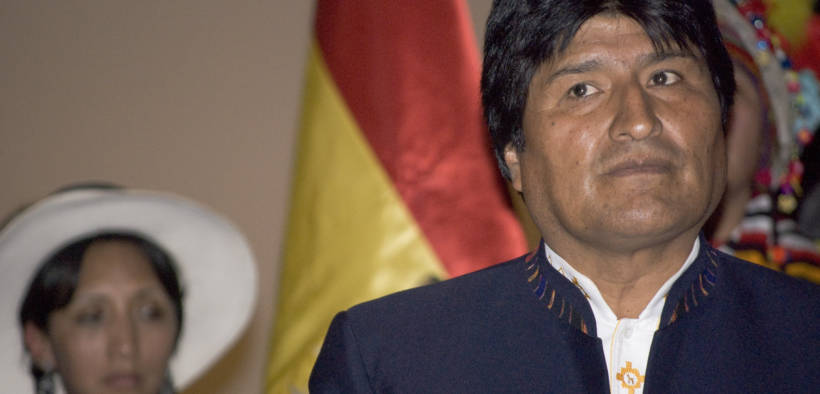
Former Bolivian President Evo Morales was forced to resign after a Bolivian coup that has shaken the country and resulted in violent and deadly protests.
Bolivia is currently wading through what exiled former Bolivian President Evo Morales has dubbed “the most cunning and disastrous” Bolivian coup in history. Morales is in Mexico, while Senate leader Jeanine Anez has taken the reins as Bolivia’s interim president. But how did Morales, a beloved socialist leader, go from winning his fourth re-election to being forced into exile in Mexico while Bolivian streets filled with bloody protests?
What Happened in Bolivia?
On October 20 Evo Morales won his fourth term to serve as president of Bolivia but the election sparked nationwide protests after a 24-hour halt in the vote-counting process. Vote results initially showed Morales falling short of the necessary margin for victory, but when the vote-counting resumed, results showed that Morales won and avoided a December run-off by earning a 10-point lead over his opponent Carlos Mesa. However, the election was beset with accusations of voter fraud.
Bolivia enlisted the Washington, D.C.-based Organization of American States (OAS) to conduct an audit of the election. The OAS report claimed it found “physically altered tally sheets” and “forged signatures” among other voting irregularities.
“The manipulations to the computer system are of such magnitude that they must be deeply investigated by the Bolivian state to get to the bottom of and assign responsibility in this serious case,” the OAS report said.
But the crucial role of the OAS in the Morales ouster casts a shadow over the nature of Bolivia’s uprising and Morales’ removal as many believe the organization is a tool of U.S. imperialism. The organization is so questionable that U.S. Senators Marco Rubio and Mike Lee called out the OAS in 2016 for cultural imperialism and concerns over the organization’s intentions.
Many, in fact, are calling what is happening in Bolivia a coup, and the U.S. has a history of supporting and aiding coups, especially in Latin America. While the origins of the Bolivian coup are still being hashed out, the best clues may, in fact, lie in Venezuela.
Is Bolivia Coup Venezuela 2.0?
Bolivia’s current political crisis comes on the heels of an attempted coup of another largely socialist Latin American country: Venezuela. Morales in Bolivia like Chavez and Maduro in Venezuela adopted strong socialist policies during his long reign as president and stood up to U.S. imperialism.
Morales was one of many socialist presidents who ruled Latin America in the mid-2000s, such as the late Nestor Kirchner (Argentina), Lula da Silva (Brazil), Hugo Chavez (Venezuela), and Rafael Correa (Ecuador). Morales even dubbed Chavez his mentor.
While the workings of the U.S. to oust Venezuelan Presidents Chavez and Maduro weaves an undercurrent through years, if not decades, of Venezuelan politics, the U.S. demand for Maduro’s became much more vocal in recent years. Like Bolivia that demand grew after allegations of election fraud challenged Maduro’s most recent election win. The U.S. seized on the allegations and fervently supported Maduro opposition leader Juan Guaido.
But long before the U.S. pinned its calls for the removal of Maduro and Morales on “election fraud” and U.S. accusations of authoritarianism, both countries adopted similar measures destined to upset U.S. motives and possibly setting in motion the beginnings of the Venezuelan and Bolivan coups.
Like Chavez, Morales, who has ruled Bolivia since 2006, successfully improved the living conditions of his countrymen, drastically growing the middle class. Both were also heroes to the lower and middle class and indigenous groups. Morales, the first Bolivian president from the Andean nation’s indigenous minority slashed the poverty rate from 60% in 2006 to 35% in 2017. Extreme poverty was down from 38% to 15%, as government data showed.
But to achieve such gains, Morales did not adopt the U.S.’s preferred neoliberal model of privatization and foreign investment. Instead, Morales combined public ownership, the nationalization of vital sectors and big business taxation, ultimately reducing the country’s dependence on U.S. dollars.
In 2007 Morales announced Bolivia’s withdrawal from the World Bank’s International Centre for the Settlement of Investment Disputes (ICSID), an arbitration mechanism that enables foreign investors to leverage investment deals to sue governments for “unfair” treatment. Bolivia was targeted by such a “corporate court” when Bechtel sued the country for annulling the privatization of the Cochabamba water system.
Rightly or wrongly, both Maduro and Morales have been labeled authoritarian leaders who restrict freedom of expression in the name of preventing conspiracy against the government. But when the U.S. is supporting opposition groups (as it supported Juan Guaido for years) that want to remove the sitting president, such laws are destined. Maduro and Morales and likely any national leader outside the U.S. is keenly aware of the U.S.’ long history of interfering in Latin American politics.
Why Did Bolivian Coup Succeed but Not Venezuelan?
Despite the many similarities between Bolivia and Venezuela, there is one key difference that is likely the reason Maduro is still in power and the Venezuelan coup failed while the Bolivian coup succeeded and Morales is now in exile in Mexico: the role of the military.
“The main difference with Nicolas Maduro is that he has the full support of the armed forces. The government’s number two, Diosdado Cabello, is military and in his presidential cabinet plus other strategic sectors of the government are members of the armed forces,” Cesar Valencia, an analyst for Santiago-based consulting firm Alpari told Citizen Truth.
In Venezuela, the military has a large influence over politics, and while the Venezuelan military stayed loyal to Maduro, the Bolivian military refused to confront protesters. As a result, Morales chose a democratic solution by agreeing to an audit from the OAS, an audit that ultimately sealed his fate in exile.
The former president has pursued other avenues of resolution including calling for a dialogue involving the U.N., the Vatican and other mediating countries to calm down the turmoil. Morales also followed up the OAS report with a call for new elections but Anez, Bolivia’s now-interim president, has called for new elections to exclude Morales. But despite Morales’ efforts at diplomacy, without the support of the military, Morales was on a plane bound for Mexico just minutes after the military called for him to step down.
It’s hard not to notice too that while the U.S. calls for democracy to overthrow socialist-leaning leaders in Latin America, the U.S. administration is also fighting to quell growing support for socialism at home. Is the U.S. repeating its mistakes of the Cold War when it fought communism by supporting subversive and brutal regimes in Latin America?









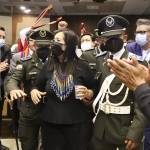
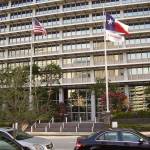
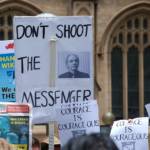

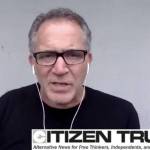



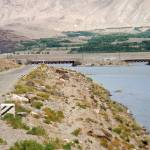

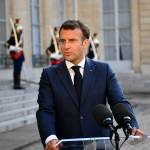












The Russian infer in, America election and we are upset, we put sanctions on Russia, now we interfere in Bolivia, want wrong with Picture, America one Day there will be a Pay- Day!!!!!!!!!!!!!!